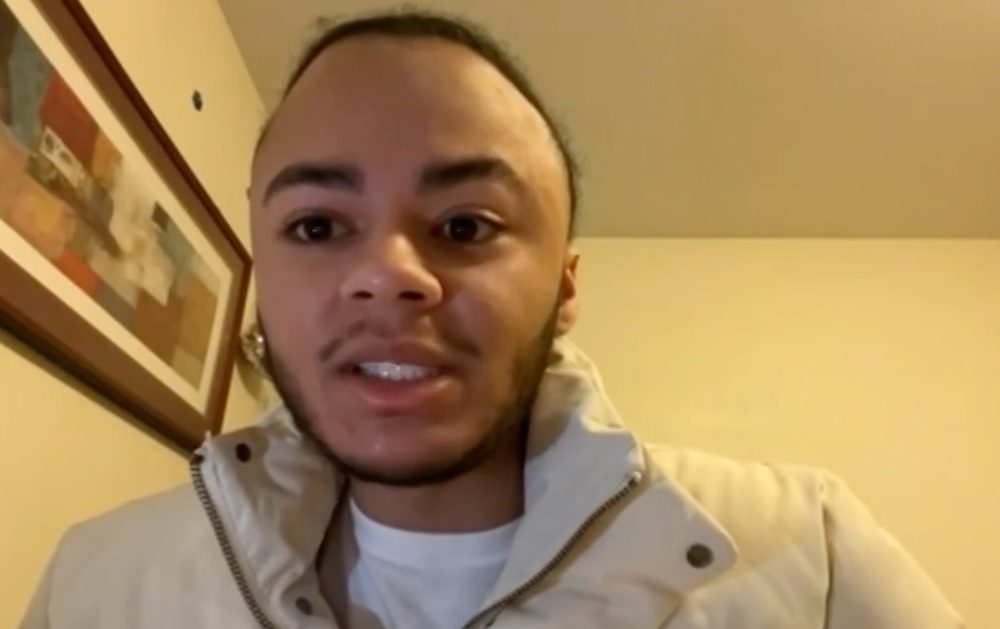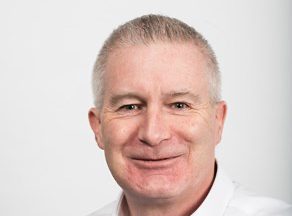With her year as president of the CIH drawing to a close, Lara Oyedele spoke to Phil Brotherhood about her passion to champion diversity and equal representation: She’s all about making a difference
Making the world a better place is what drives Lara Oyedele, who tweeted: “Let’s make today a better day for someone else.”
As president of the CIH, Oyedele’s campaign In My Shoes is committed to raise awareness of the importance of racial diversity and equal representation across UK housing boardrooms.
As part of this campaign, she has commissioned research on boards’ ethnic and gender diversity: Breaking the Mould: Exploring the Lack of Ethnic and Racial Diversity in Boardrooms of UK Housing Organisations.
With her year as president of the CIH drawing to a close, Phil Brotherhood asked a series of questions and learned that Oyedele’s passion to make a difference is not stopping there.
Where did you grow up?
“I have three siblings all born in different places. I was born in London, my brother who’s five years younger, was born in Bradford, then we moved back to London. We moved between Yorkshire, Nigeria and London.”
”What is the point of being here if you can’t help other people?”
What roles do you have working in UK housing?
“What brings me the most joy is being chair of Hope Housing, a small homelessness charity in Bradford. This is at the coalface of housing provision, people sleeping rough housed in emergency accommodation.
“We provide acute provision; few stay with us for a long time. The majority are passing through. This is key, hands-on, frontline work, supporting people into more permanent accommodation.
“At Hope Housing, I use my experience of homelessness; I was homeless in the middle of my A-levels and couldn’t continue my studies.
“On a different scale, I’m on the board of Housing 21, which has 23,300 tenancies across the country. This is a non-executive role, with budgets of millions of pounds. This is provision for older people, over 65s, and is so rewarding.
“In a few years, that will be me! My parents are in their late 70s to mid-80s. However, most of my career, I’ve worked in general needs housing.
“I am president of the CIH until October.
“I’m on the board of a Community Interest Company, SVH Inc. which is a mental health organisation in Harrogate.”
What drives you to make a difference on a daily basis?
“All my roles make a difference; that’s what I’m about. That’s why I exist.
“In my 20s, I asked myself ‘What is the point of life?’ It’s a critical question. I’m not a mother. I don’t have a car. Maybe I’m here to make the world a better place for other people.
“What else are we here for? What is the point of being here if you can’t help other people?”
How has your presidential year gone with the CIH?
“I never expected to win. I want to change the world and make everything better for everyone. I want to pack as much in and make a difference. I’m either in or out, all or nothing.
“I’ve spoken to lots of people. I love housing and I love people. I get to do all of those in a combined role; I should be a permanent housing ambassador!
“I object to poverty in this society. Shoes are an underestimated part of homelessness. When you are homeless, you walk a lot. You get given food and clothes, but you rarely get given shoes. So, I’ve incorporated this into the In My Shoes campaign.
“As I became more and more senior in the sector, most of the people who started with me, that looked like me, have disappeared. There is a distinct lack of diversity at the leadership level of the sector.”
What has been the impact of your In My Shoes campaign? Is there more diversity in boardrooms?
“I don’t know statistically how diverse boards have been historically.
“Fifteen to 20 years ago, boards were a lot less diverse. It’s still not good enough. They are still predominately male, white, not working class, lacking in resident representation. I don’t see any reason why that should be the case. McGregor-Smith noted the financial impact of not facing diverse needs.
“The sector hasn’t done what it needs to do. FTSE 100 companies from January this year have to report on diversity in their boardrooms. The Government Commission, the SCA, made it a requirement.
“FTSE 100 companies have international investors who won’t do business with you unless your company board is diverse. We don’t have that international investment or scrutiny in the housing sector, so we’re not obliged to do that.
“Our sector comes from a social activism background, responding to social injustice. This ethos has to be reflected in the demographics of our leadership.
“I’m passionate about poverty; some people can afford to go into space for 20 seconds but we can’t afford to feed schoolchildren.]
“Most of the FTSE 100 companies have one black person who is usually a woman on their boards, which is psychologically unfair for that person. You have that psychological burden, the black woman speaking for all non-whites and it is emotionally challenging.
“If you’re the only person, you carry additional burden. I would like to see a gender balance on boards, with at least 50% of boardrooms being made up of women, with at least a third of the board from an ethnic minority background. You need equal representation.
“Thirty nine per cent of the population is made up of white men, so why is 80 to 90% of the boardroom? To get true diversity of opinions, comments, ideas, you can’t have one person on the board representing 50% of society – in the case of gender for example.
“How do you measure the impact of a campaign? The changes cannot be made in 12 months. The average boardroom turnaround time is six to nine years.
“Change is not seen in one year; if I come back in five years, I’m confident, with the new government, we would see change, with more diversity compulsory for the third sector and public organisations. Bodies which provide public services should work together on a petition to make that a requirement.
“I’ve been looking at boards on websites in UK housing, which have 14% black people.
“There are still organisations in our sector that have all male, white Boards; 23 PlaceShapers members have no visible representation of black or ethnic minority members on their board.
“The Northern Housing Consortium has 13 members that have no visible representation of black or ethnic minorities on their board. Four BME housing associations have all non-white boards. BME associations also need to have boards which are diverse and representative.
“I struggle with the impact of my campaign. I constantly get asked to speak at events, but they are usually people who already agree with what I’m saying. We need to challenge the organisations and individuals who don’t think this is a problem and are happy with the status quo.”
What are the biggest challenges facing the sector?
“Your average person is now talking about housing and housing associations. We used to be niche, now everyone is talking about us. But not in a good way.
“The biggest challenge as a profession is the hammering our reputation has taken; our reputation is almost as bad as that of politicians and estate agents!
“We have heard of tenants left dead in housing association properties for years, we have heard of damp and mould, and then there’s Grenfell. Daniel Hewitt is embarrassing us and so is Kwajo Tweneboa. We get defensive, saying it’s a one-off. But so many unfortunate one-offs surely imply we have a problem. As a profession, this is one of the things that affects us the most.
“There is a lack of investment. No one knows what ‘affordable’ means any more. You can’t have subsidised social housing if it’s not subsidised at the centre. The trickle-down economy doesn’t happen when it comes to housing.
“In terms of home ownership, not everyone is ready, able or wants or needs home ownership. Rented accommodation is important and it needs to be affordable.
“I would eliminate the right to object to developments. NIMBYISM – no one wants a development in their back yard. We built the most amount of properties post-war. We commandeered property and land. If everyone objects that they don’t want this homeless hostel here or the houses there, where are we going to house everyone?
“How can we pay for all the things we have to do? We have net-zero, retrofit issues, ongoing repairs and maintenance, we have to support our tenants and staff with the cost of living but we don’t want to put our rents up. How do landlords square that circle?
“The focus on shared ownership is making people desperate. The emphasis on home ownership has backfired.
“The cost of living crisis, inflation and borrowing alongside outstanding cladding repairs and flats that now have no market value are big issues. We can’t get enough staff. There is a gap in the workforce with an ageing demographic, meaning we have more older than younger people. Anyone who wants to work in housing can now pick and choose their role.”
What more needs to be done and what are your plans for the future?
“I will petition the business secretary regarding diversity in boardrooms and the workplace.
“Whatever I do will be making a change for the future. I’m passionate that everyone should have a roof over their head, which is safe, secure and affordable. How do we do that as a nation? We have the resources, not always the skill-set and it appears, not the will.
“I’m passionate about poverty; some people can afford to go into space for 20 seconds but we can’t afford to feed schoolchildren. We have so many food banks now, when did this become the norm? The poor are getting poorer and the rich are richer.”
What do you think of Kwajo Tweneboa and others shaking up the sector regarding disrepair?
“Yes this had to be done.
“I don’t think anyone who’s been in housing is surprised by what has now been exposed to the world. We’re embarrassed.


“A lot is happening in large organisations; when you have 100,000 or 125,000 homes. When you’re in a boardroom, you see reports of 98% success in board papers which sounds good, but what is the 2% in terms of homes and families? What about the 2%? That’s a lot of homes.
“The campaign was necessary. We had Grenfell; until today, not one housing professional has taken responsibility for that.
“‘Serious detriment’ was the bar you had to jump over to get the Regulator to investigate your complaint. It was never really clear what ‘serious detriment’ meant. You had to be hit over the head with a brick to make ‘serious detriment.’
“The tenant’s group at Grenfell had approached the Regulator about their block being unsafe. They were told ‘you don’t meet the ‘serious detriment’ criteria, go back to Kensington Management Organisation.’
“We have massive cultural issues in the sector. I’d make sure at least two tenants are on every housing association’s board, preferably with a tenant as chair.
“The priority of boards should be whether tenants are happy and are repairs contractors on time, and not their financial rating. If I was housing minister, any residents with repairs overdue beyond six months would have a house swap with the CEO until the repairs are completed. That would make a big difference.
“Current processes and regulatory changes don’t seem to be making the difference so something radical has to happen.
“I like what Richard Blakeway is doing at the Ombudsman. We have to push even harder and ensure repairs are carried out quicker.
“The Ombudsman has written so many ‘name and shame’ letters to housing organisations over the past years. So many have received hefty fines. Yet new cases of neglect, disrepair and chronic mismanagement seem to come to light every other day.
How do you think Michael Gove is doing as housing secretary?
“Michael Gove says the right things.
“Some of the issues were created by his predecessor Grant Shapps with the ‘Bonfire of the Quangos.’ On the surface, Gove seems to be making a difference. It appears he doesn’t have the full support of his cabinet colleagues and he needs more money.
“I don’t see him moving too far away from the emphasis on home ownership.”
Will housing be one of the main battlegrounds for the general election next year?
“Housing definitely will be one of the biggest issues; it’s connected to the economy and is intrinsically interlinked with all other aspects of our lives.
“Migrants are not the cause of people’s problems with mortgages, food banks, the ability to pay utility bills, interest rates and inflation.
“I believe that kindness and compassion must be at the forefront of people’s thinking at the next election.”
Phil Brotherhood is managing director of Brotherhood PR
Image credit: Lorne Campbell/Guzelian
Read next: We have the technology, so let’s use it
Are you a social housing professional? Sign up for a FREE MEMBERSHIP to upload news stories, post job vacancies, and connect with colleagues on our secure social feed.



